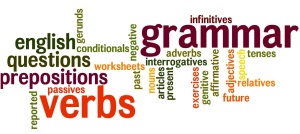So long since i added anything to my blog. Of course the longer I wait, the more guilty I feel and and the less I am inclined to actually do something about it,
Here’s one attempt at a solution: start small. And I really do mean small. Not 1,000 words a day, not even 500 – but from now on, at least 100? Just a thought what about the days when I don’t even open my blog? Perhaps I should build up a sort of writing “debt” and if I don’t manage 100 words today, try for 200 tomorrow? Or is that just too complicated?
Something I’ve noticed since I started to have problems with arthritis is that I need to take life in small pieces. The 30-minute rule. (compare the British parliament’s 10-minute rule) My strategy is a bit different: I do various jobs and activities in half-hour sessions. I can spend half an hour in the garden, pulling out weeds or harvesting peas and not feel too shattered at the end. If I try to have a whole day, or even a whole afternoon working in the garden, I just can’t manage it. So I do my 30 minutes and then spend 30 minutes cleaning the floors or tidying my desk or even writing my blog.
This approach works – for me, at any rate. Even if I don’t get everything finished I do get some of it done, I can look at the small bag of peas or beans that I’ve harvested or the 20 yards of path that I’ve swept and see that I’ve achieved something , however small.
I may never write a million-word epic, but I have written several limericks!
Anyway, how often have you been put off reading something because it was pages and pages of densely-packed prose? I’ve often turned from a long article or story to choose instead a short “filler” a snappy paragraph or a four-line verse.so who knows writing shorter pithier blogs might actually get me more readers,




